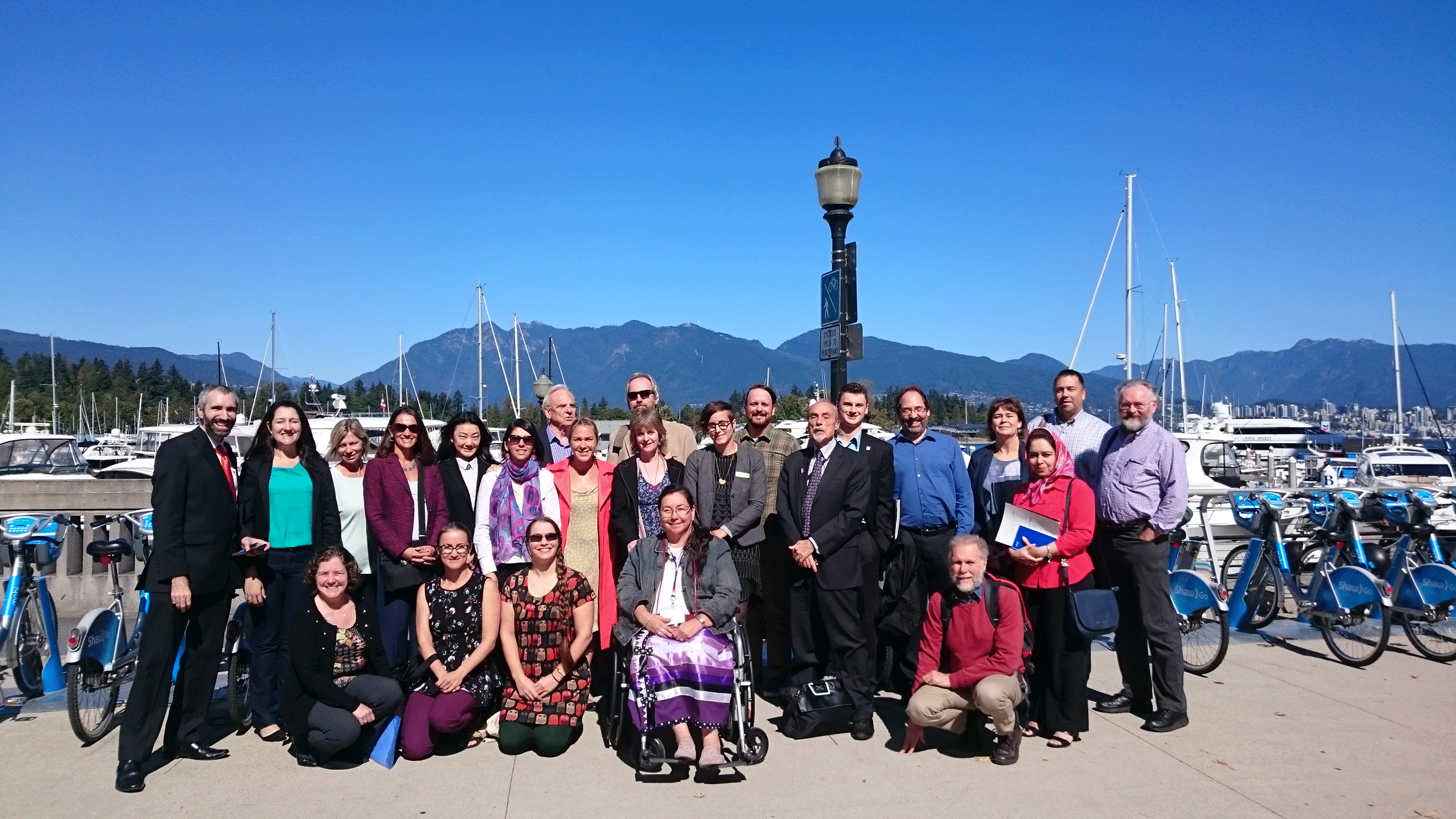6th Americas Regional Conference
6th Americas Regional Conference: “Sustainable Cities and Communities: Exploring the Role of ESD in the Development of a Green Culture”
13-15 September, 2017, Vancouver, Canada

RCE British Columbia (Northern Cascades), with the support of United Nations University Institute for the Advanced Study of Sustainability (UNU-IAS), hosted this year’s regional meeting in the Americas. The meeting was held back to back with 9th World Environmental Education Congress (WEEC).
David Zandvliet of Simon Fraser University, which is the Secretariat of RCE British Columbia, coordinated both WEEC and the RCE Americas Meeting successfully. RCE members from RCE Curitiba, RCE Greater Burlington, RCE Georgetown, RCE Saskatchewan, and RCE Greater Portland attended WEEC prior to the meeting.
The Conference with the theme “Sustainable Cities and Communities: Exploring the Role of ESD in the Development of a Green Culture” also took stock of regional initiatives, including the role of ESD in implementing sustainable development on the ground in the Americas. The Conference provided a regional platform to discuss, debate and launch activities that reinforce the fundamental role that education plays in achieving a sustainable future worldwide.
30 participants from eleven RCEs across five countries (Brazil, Canada, Colombia, Guatemala, and the United States) attended the meeting. RCE Greater Western Sydney and Jaime Webbe from the UN Environment Programme (UNEP) joined to share insight on their ESD related activities. Additional attendees included Kumi Tashiro from the Ministry of Environment Japan, Bozzi Pierluigi from the International University Network on Cultural and Biological Diversity (IUNCBD), and Charles Hopkins, UNESCO Chair in Reorienting Teacher Education to Address Sustainability and Adviser to the RCEs of the Americas.
During the meeting RCES could familiarize themselves with cutting edge research and initiatives in the field of environmental education while attending WEEC, and they shared best practices in ESD and updated their peers on current initiatives. During the programme, Philip Vaughter (UNU-IAS) gaven an update on the Global RCE Network, and presented UNU-IAS’s collaborations with UN organizations on the Action for Climate Empowerment (ACE) education initiative through the UNFCCC. Through working with ACE partners, UNU-IAS was able to supply the names and contact details of climate change education focal points for those nations in the Americas that have designated them, as well as illustrate which nations have gaps in filling this position.
Participants agreed to develop an expert database for RCEs in the region, which can later be expanded to include other RCEs globally. The RCE Network is one of the largest global networks of ESD expert and practitioners, but contact between RCEs was often limited to the coordinator level. With such a database RCEs could access the full spectrum of experts working in each region. RCEs also expressed interest in mapping the SDGs onto both experts in the region as well as to projects (possibly in addition to existing tags within the RCE portal database). This would allow for RCEs in the region to connect both local experts and projects with the 2030 Development Agenda and its individual targets. In addition the database would provide UN partners with a comprehensive database on who is working on which projects related to the various SDGs.
Further follow up items for output from the conference include developing portal profiles for all active RCEs in the region, designating youth focal points for all RCEs, and engaging with art educators and artists to create mascots for RCEs, similar to RCE Central Hokkaido. Possible joint project ventures include a podcast on the SDGs as well as creating more open source curricula to be shared among the region’s RCEs.
Two of the new RCEs, RCE Georgetown in the United States, and RCE Kawarthas in Canada, have had great success in securing grants to support start-up operations. RCE Georgetown has secured a$100,000 USD grant from NOAA to develop a sustainable city plan for their community, and an additional $35,000 USD grant to employ youth to work with data collection for education initiatives. RCE Kawarthas has secured a $40,000 CAD grant to aid in coordination activities for their first year of operation.
RCE Bogotá’s activities continue to multiply, with forum and webinars reaching over 10,000 youth around the region. RCE Bogotá, RCE Curitiba, and RCE Saskatchewan are actively partnering with other UN organizations on their education initiatives. The majority of RCEs in the region are actively engaged with ESD to facilitate Sustainable Development in their regions. While past meetings have focused on cross continental initiatives, this meeting marked a sea change to focus on asset and expertize sharing rather than developing additional joint projects. RCEs in the Americas are very active locally on ESD implementation, and the desire was stated to see how these initiatives relate to UN objectives.
The Programme can be downloaded here.
Presentations have been uploaded here.
Photos have been shared on facebook.
To further the goals of the regional action plan, and to promote RCEs’ contributions to the Sustainable Development Goals (SDGs) and the Paris Agreement, the Secretariat asked each participating RCE to review last year’s regional action plan. Some of these action plans will be shared in due course.


